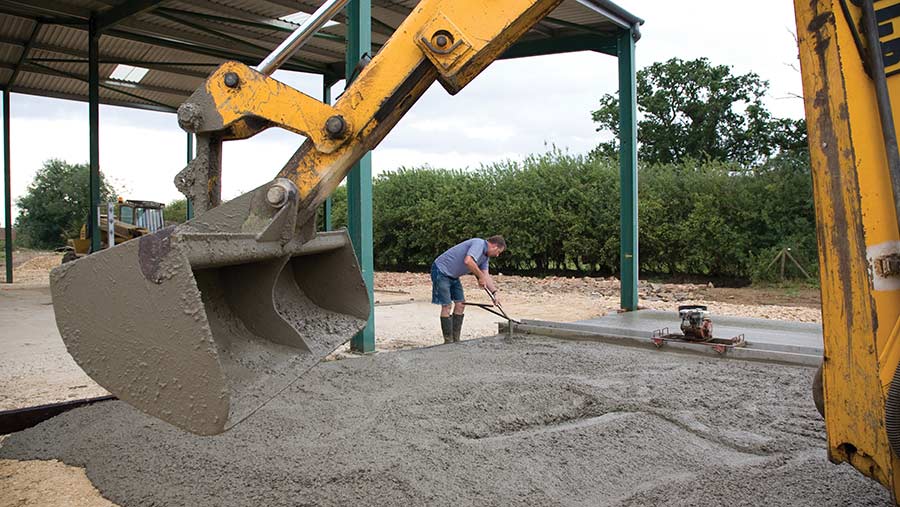10 helpful legal, financial and business facts for farms
 © M-image/Adobe Stock
© M-image/Adobe Stock As we enter a period of reflection over the holidays, business experts in our industry tell us their useful, but sometimes little known, legal, financial and farm management facts to take into 2024.
See also: 15 fresh ideas for making money or cutting costs on farm
1. A will can be changed by a deed of variation
James Worsick, solicitor, wills trust and probate, Burnetts Solicitors
Although not generally well known, a deed of variation is a document that can be used to great effect when administering estates.
This type of deed can be used within two years of the date of death by the beneficiaries of an estate to vary their entitlement under a will or intestacy.
Most beneficiaries will be inclined to accept a gift in a will, but in certain instances variations can be made to make immediate tax savings, to take advantage of available reliefs, or to make alterations to how certain assets are to be inherited.
The changes made in a deed of variation must be agreed by any beneficiary affected by the proposed variation and can play an important part in estate administration, particularly where tax or other legislation may have changed between the will being drafted and it coming into effect.
For inheritance tax and capital gains tax purposes, the terms of the deed of variation are treated as having been contained in the deceased person’s will (or intestacy) rather than as a gift made by a beneficiary varying their entitlement.
This can assist with tax-efficient gifting.
2. Marriage revokes a will but divorce does not
Mike Nicholls, partner, head of wills, trusts and probate, Burnetts Solicitors
If you marry after making a will, unless specific provisions were included in the will, the subsequent marriage will have the effect of automatically revoking that will.
So, unless you either re-execute your will or make a new one, your estate will be dealt with in accordance with the intestacy rules.
In many cases this will not be appropriate or as intended. On the other hand, if you make a will while married but later get divorced, your will is not completely void.
However, the will would be interpreted as if your ex-spouse had died before you and therefore any substitutional provisions in the will would take effect instead.
3. No mid-tier scheme agreement is needed to claim standalone Countryside Stewardship capital grants
Chloe Timberlake, associate, Ceres Rural

© Tim Scrivener
- These grants cover a wide range of items and there are no application deadlines, so they can be applied for at any time
- There is no longer a financial cap on the value of a capital grant application, but applications are subject to a value for money assessment by the Rural Payments Agency (RPA)
- Most payment rates were increased in January 2033. BN11 – planting new hedges, for example, is now a favourable £22.97/m
- Popular infrastructure items include RP15 – concrete yard renewal (£33.64/sq m), RP4 – livestock and machinery hardcore tracks (£44.63/m) and RP28 – roofing for a sprayer washdown area, manure storage area, livestock gathering area, slurry stores and silage stores (£72.50/sq m). FG2 – fencing (sheep netting) is £7.47/m
Browse suitable options via the gov.uk grant finder or consider booking a free, Defra-funded Future Farming Resilience Fund visit to explore possible opportunities.
4. A partnership is at risk if there is no written agreement
Joanne McKenzie, partner, head of agribusiness, Burnetts Solicitors
Where you are in business with others but have no written agreement, the Partnership Act 1890 applies by default.
This often has unintended consequences for the business and the family – for example, automatic dissolution of the partnership on the death or retirement of one partner.
A partnership agreement does not have to be complicated or expensive, but can help protect the business.
It needs some thought and can save a lot of time and stress compared with what can result when there is no written agreement.
5. Electricity emergency number
Robert Gazely, partner, Ceres Rural
In the event of an electricity emergency, dialling 105 from a mobile phone or landline will connect you free of charge to the local network distribution operator.
This is useful for reporting damage to the network or a dangerous situation and also for reporting power cuts in England, Wales and Scotland.
6. There’s still good funding for free farm business advice
Guy Coggrave, managing director, GSC Grays
Farmers in England can access free consultancy advice funded by Defra’s Future Farming Resilience Fund.
This is designed to help prepare for the biggest agriculture policy shift in a generation as Basic Payment Scheme support falls.
Defra has awarded funds for this to 16 organisations, with help ranging from webinars and workshops to one-to-one advice on business planning, resilience and environmental sustainability audits, as well as follow-up support.
The firms can be found on the government website.
GSC Grays is one of the 16 organisations advising farmers through the fund and conducted a survey of 50 farm businesses that have benefited from the service.
- 80% of those taking part in the survey feel sufficiently informed to make improvements to their farm businesses following the on-farm review
- 76% feel more confident about making decisions for their farm businesses during the agricultural transition following their on-farm review
- 80% would recommend the service to to other farmers
Among those surveyed, 47% were owner occupiers, 14% tenant farmers, 39% were both owner and tenant. There were fewer than three full-time employees on 83% of the farms.
7. New duty to prevent workplace sexual harassment next year
Annabel Doyle, trainee solicitor, Burnetts Solicitors
A new statutory duty set to come into force in 2024 will require all employers to take a proactive approach to adopting reasonable steps to prevent sexual harassment in the workplace.
The focus will be on proactivity, rather than a reactive approach after sexual harassment has occurred.
Failure to undertake this duty can result in a significant uplift of compensation an individual can receive at an Employment Tribunal by 25% on their total award.
In addition, the Equality and Human Rights Commission can become involved and enforce this upon employers.
8. Electrical inspections are recommended every three years…
Robert Gazely, partner, Ceres Rural
Fixed electrical systems should be inspected and tested by a competent electrician.
Although Health and Safety Executive (HSE) guidance gives no recommended interval, the BS7671 IET Wiring Regulations 18th Edition recommends a maximum period of three years for agricultural and horticultural settings.
Fixed electrical systems are commonly overlooked and the recommended interval of three years is rarely known.
9. …and work kit must be maintained

© Andrey Popov/Adobe Stock
The Provision and Use of Work Equipment Regulations require that work equipment is “maintained in an efficient state, in efficient working order and in good repair” – this applies whether the work equipment is a bench grinder, leaf blower, grain store or combine harvester.
Penalties start with the HSE’s fee for intervention (FFI – currently £166/hour) and go from there.
In the event of prosecution, imprisonment is up for to two years.
The financial penalties are unlimited and linked to turnover – and plenty of rural businesses have huge turnovers but very modest profitability.
Also, for every £1 in direct and insured costs, health and safety breaches typically result in £10 of indirect or uninsured costs (accident investigation, lost time, lost productivity, reputational damage, retraining and so on) – an iceberg effect.
10. You can earn £7,500 a year by renting out a room in your house to a lodger
Carly Drummond, senior tax manager, MHA
The Rent a Room Scheme lets you earn up to £7,500 a year, tax-free, when letting furnished accommodation in your own home.
This is halved if you share the income with another person (i.e. a married couple share the £7,500 tax free element).
The exemption is automatic – if you earned less than £7,500, you do not need to do anything.
If you earn more than this, you must complete a tax return to declare the income over the £7,500 threshold.
When completing a return, you can opt out of the scheme and account for your income and expenses in the usual way if you prefer to do so.
Any resident landlord can use this scheme – you do not need to be the homeowner. You can also benefit from this if you are running a B&B or guest house.
